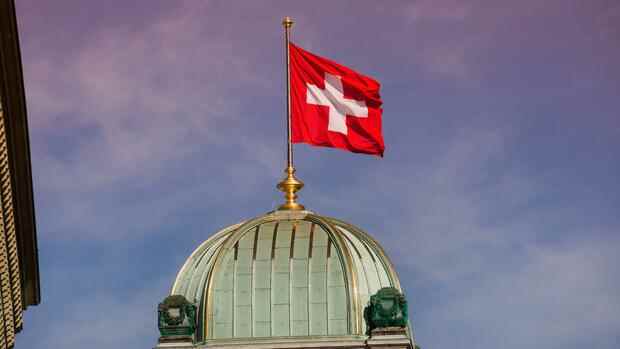For the time being, Switzerland will not allow the export of Swiss-made ammunition to Ukraine.
(Photo: imago images/Andreas Haas)
Zurich The delivery of heavy weapons such as the Gepard tank to Ukraine marks a reversal in German armaments policy. But the federal government cannot count on the support of Switzerland in this case: the Federal Economic Secretariat (Seco) prohibited the Federal Republic from passing on ammunition that Germany had imported from the neighboring country.
According to reports from “SRF” and “Handelzeitung”, in addition to rifle ammunition, this also includes projectiles or components for projectiles that can be used in the Gepard anti-aircraft tank. However, this does not jeopardize the delivery of Gepard tanks to Ukraine: Germany can also obtain ammunition for the tanks from domestic sources, the media reports continue.
When he refused to allow the ammunition to be re-exported, the Swiss authorities referred to the War Material Ordinance: Switzerland prohibits the supply of weapons or ammunition to war parties. The law is considered one of the cornerstones of Swiss neutrality.
Even the Gepard delivery itself is politically sensitive: the tank consists of important parts made of Swiss technology. According to the “SRF”, the 35-millimeter guns were manufactured by the Swiss industrial group Oerlikon-Bührle. However, the air defense division, Oerlikon Contraves AG, was merged into the German Rheinmetall group in 2009.
Top jobs of the day
Find the best jobs now and
be notified by email.
Since Russia invaded Ukraine, a debate has flared up about how neutrality should look in Switzerland. Switzerland initially did not want to implement the first EU sanctions after the outbreak of war. Within a few days, however, the reversal in the federal sanctions policy followed: Since then, the country has been implementing the EU’s punitive measures against Russia’s elite one-to-one. The country has frozen billions of dollars in Russian assets.
“No military support to conflicting parties”
Switzerland’s tough course against Russia has broad popular support: Only politicians from the right-wing conservative Swiss People’s Party (SVP) spoke out against the implementation of EU sanctions. Since then, the liberal Federal President Ignazio Cassis, who is also responsible for the Foreign Office, has been campaigning for international understanding for Switzerland’s position.
>> Also read here: Russia halts first gas supplies – Ukrainian Presidential Advisor: War could last until the end of the year
In a guest article for the “FAZ” he recently wrote that the importance of Swiss neutrality can be broken down into a few key phrases. One of them: “We do not provide military support to parties to the conflict.” Switzerland is still not willing to do this, even if the country, as Cassis writes, “unmistakably and in the strongest possible terms condemned Russia’s illegal attack on Ukraine from the start”.
Switzerland has recently vacated several foreign policy positions that have historically been considered incompatible with its neutral role. The country is trying to get a non-permanent seat on the UN Security Council in the coming year. As such, Switzerland could also agree to military operations with a UN mandate in the future.
And the debate about arms deliveries to Ukraine hasn’t died down either. As one of the first top politicians, Gerhard Pfister, head of the party “Die Mitte”, dared to break the taboo and demanded that the re-export of federal arms parts from Germany to the Ukraine be authorized. The Swiss Federal Council has the power to issue ordinances to safeguard foreign policy interests. However, the Seco, an authority that reports to the SVP-led economic department, immediately objected. However, it should not remain the last dispute about Switzerland’s political role in the Ukraine war.
More: Tanks for Ukraine: Germany ready to deliver heavy weapons.
